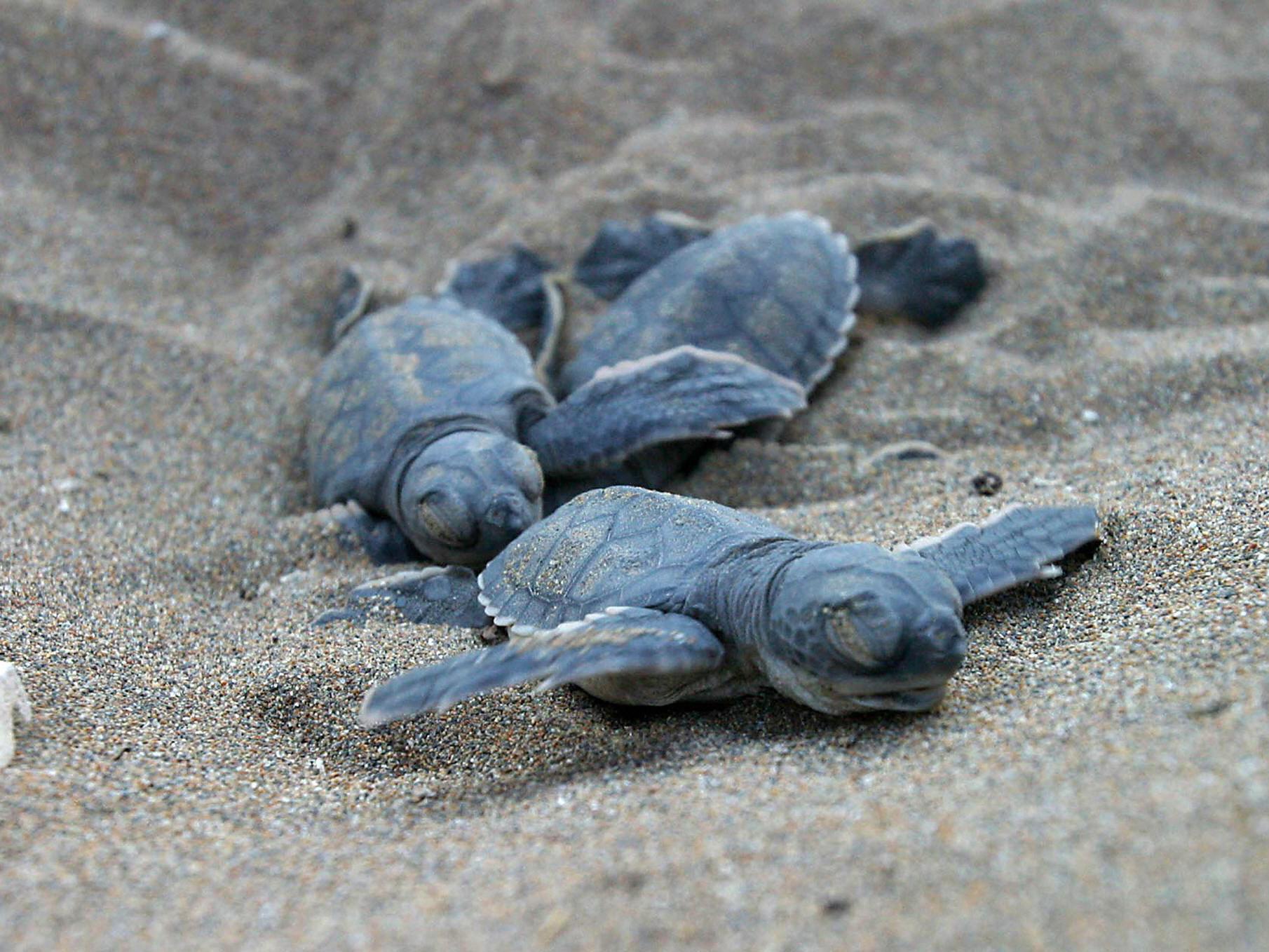Global warming is causing 99 per cent of turtles to be born female in parts of the Great Barrier Reef
Marine reptile populations face 'complete feminisation' in near future due to rising temperatures

Your support helps us to tell the story
From reproductive rights to climate change to Big Tech, The Independent is on the ground when the story is developing. Whether it's investigating the financials of Elon Musk's pro-Trump PAC or producing our latest documentary, 'The A Word', which shines a light on the American women fighting for reproductive rights, we know how important it is to parse out the facts from the messaging.
At such a critical moment in US history, we need reporters on the ground. Your donation allows us to keep sending journalists to speak to both sides of the story.
The Independent is trusted by Americans across the entire political spectrum. And unlike many other quality news outlets, we choose not to lock Americans out of our reporting and analysis with paywalls. We believe quality journalism should be available to everyone, paid for by those who can afford it.
Your support makes all the difference.Over 99 per cent of green turtles born in parts of the Great Barrier Reef are female because of increasing temperatures linked to climate change.
A turtle’s sex is dependent on the temperature at which it is incubated, so warmer nests result in more females.
As a result scientists and conservationists have warned that as global temperatures rise, Australian turtle populations face “complete feminisation” in the near future.
“Finding that there are next to no males among young northern green turtles should ring alarm bells,” said Dermot O’Gorman, the chief executive officer of the World Wide Fund for Nature (WWF) Australia.
In some northern beaches near Australia’s Great Barrier Reef, scientists found that virtually every juvenile turtle was female, and over 85 per cent of the adults.
Even in cooler beaches to the south, nearly 70 per cent of young turtles were female.
The research, that was facilitated by the Rivers to Reef to Turtles project and led by WWF Australia, was published in the journal Current Biology.
The study's leader author, Dr Michael Jensen, a marine biologist at the National Oceanic and Atmospheric Administration, said skewed sex ratios over the past two decades have resulted in an “extreme female bias” in the populations.
If this trend continues, the turtle populations are likely to collapse, he warned.
“This research is so important because it provides a new understanding of what these populations are dealing with,” he said. “Knowing what the sex ratios in the adult breeding population are today and what they might look like five, 10 and 20 years from now when these young turtles grow up and become adults is going to be incredibly valuable."
The scientists caught turtles at their foraging sites, identified their sex and used genetic tests to determine their nesting origin.
They combined this information with recent temperature data to deduce the cause of this “feminisation”.
The plight of turtles has been highlighted recently, as they are some of the many animals known to consume plastic in the oceans, often with fatal consequences.
These latest findings also add to worries about changes to the Great Barrier Reef ecosystem, which have been exacerbated by bleaching events that have wiped out areas of coral from this iconic habitat.
“But all is not lost for this important population," Mr O’Gorman said, adding that scientists and wildlife managers can use this knowledge to work out practical ways to help these turtle populations.
“One possibility is shade cloth erected over key nesting beaches, like at Raine Island, to lower nest temperatures to produce more males,” he said.
Stephen Cornelius, WWF chief advisor on climate change, highlighted the “ripple effects” of global warming, emphasising the role the world as a whole can have in helping Australian turtles.
“While these turtles may be half a world away, action to reduce carbon emissions in the UK can play a vital role in limiting the impact of global warming on green turtles and countless other marine species,” he said.
Join our commenting forum
Join thought-provoking conversations, follow other Independent readers and see their replies
Comments